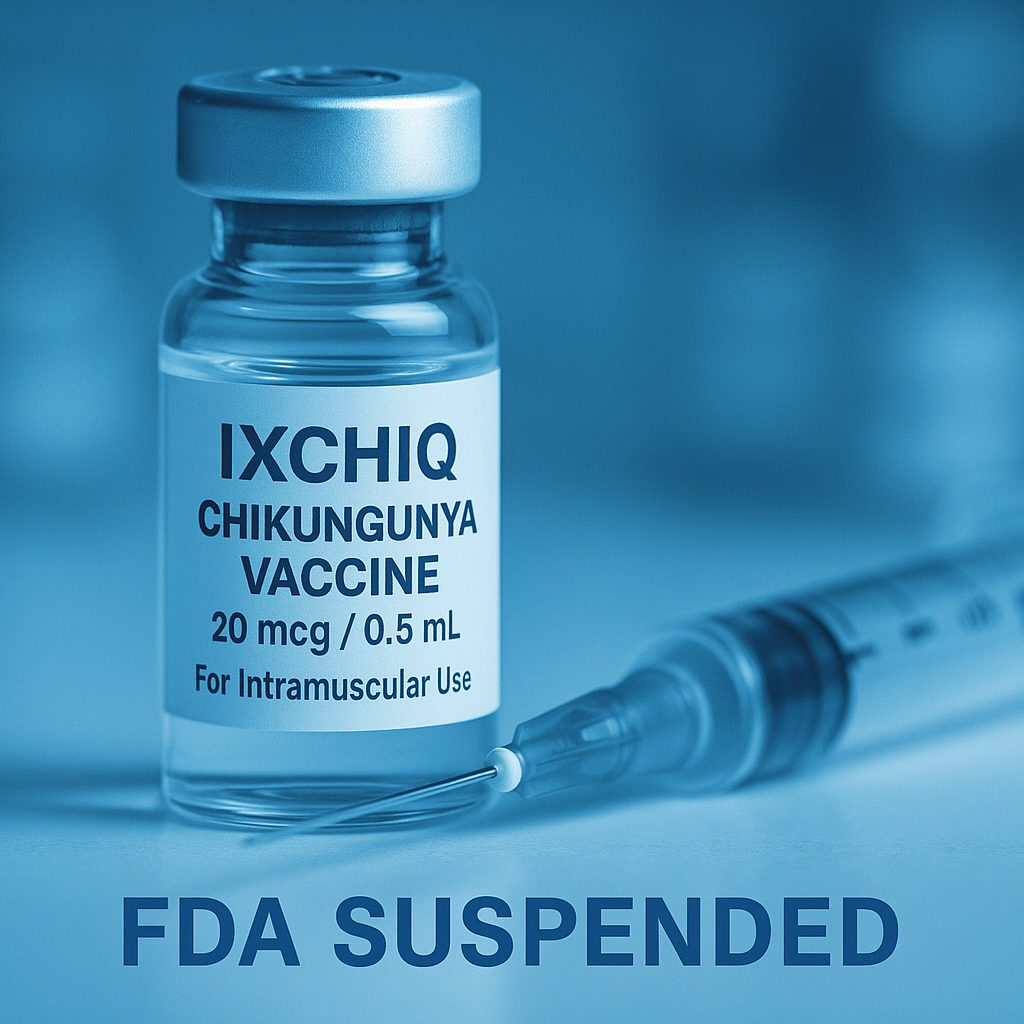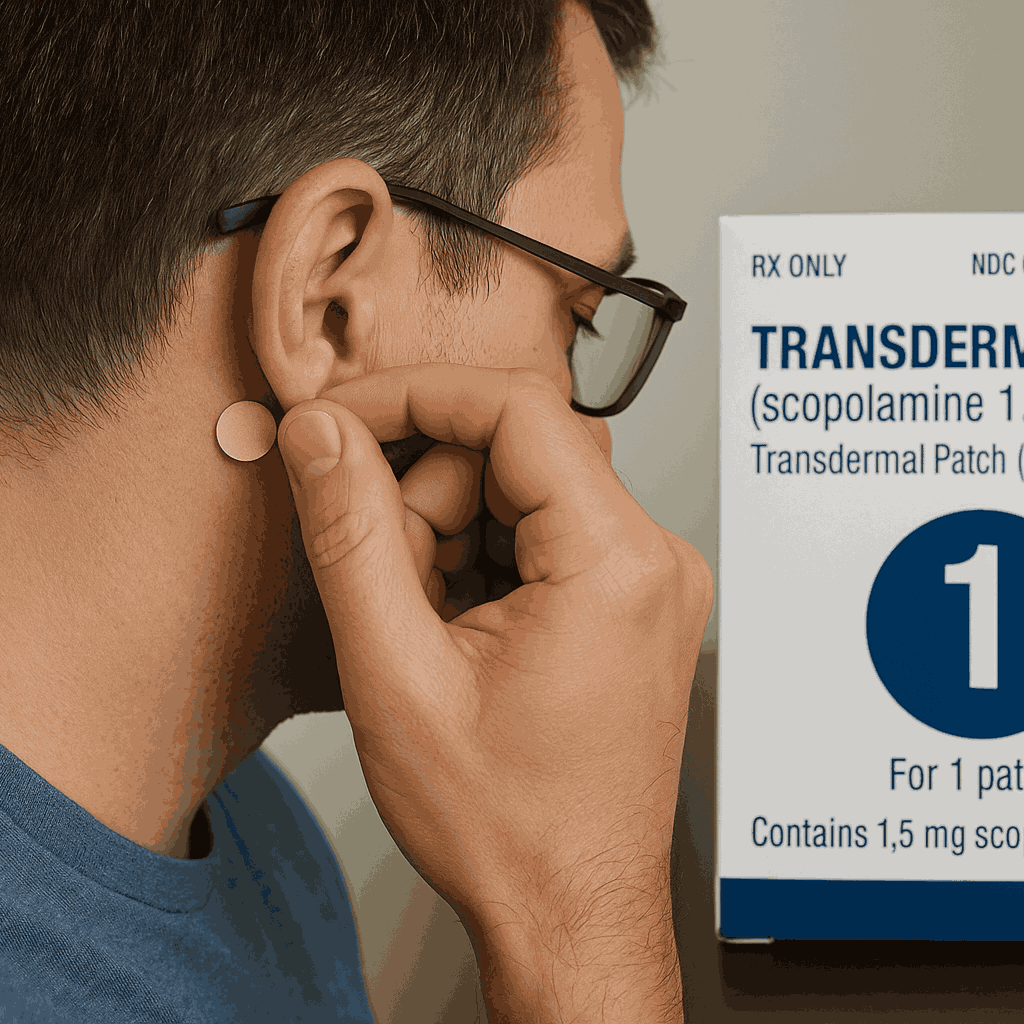Category: Drug Safety Alerts
Written and Reviewed By: Vikas Londhe, MPharm
On August 22, 2025, the U.S. Food and Drug Administration’s Center for Biologics Evaluation and Research (CBER) suspended the biologics license for Valneva Austria GmbH’s live-attenuated chikungunya vaccine, IXCHIQ. The suspension halts introductions of the product into interstate market in the U.S. while FDA continues its safety review after new post-market serious adverse event reports. The FDA’s action follows a string of safety communications and regulatory steps since approval in November 2023.
FDA’s Action
On August 22, 2025, CBER issued a suspension letter stating that Valneva Austria GmbH no longer holds an unsuspended license for IXCHIQ and that introduction or delivery for introduction into interstate commerce of the product is prohibited until further notice. “The suspension letter explained that the decision was based on new safety information the FDA reviewed and included details on how to contact the agency.”
Valneva confirmed the suspension and said the decision follows reports of serious adverse events consistent with chikungunya-like illness; the company noted it will stop shipping and selling IXCHIQ in the United States.
Basis of FDA Action
In its August 22, 2025 suspension letter, CBER explained that the decision followed a review of 32 serious adverse event (SAE) reports associated with IXCHIQ, including 7 from the United States and 25 from outside the U.S. Out of these, 21 led to hospitalization and 3 resulted in death. The FDA highlighted that 26 cases were consistent with chikungunya-like illness, where recipients developed fever, rash, and severe joint pain resembling natural infection. In several instances, the illness progressed to serious neurological complications such as encephalopathy and encephalitis, one of which was fatal. Five of the cases (including one death) were confirmed by PCR testing to be caused by the vaccine strain of the chikungunya virus, directly linking the vaccine to the adverse outcomes. The letter also pulled attention to a July 29, 2025 case in a 55-year-old male with only hypertension as an underlying condition, who developed symptoms potentially consistent with meningitis or encephalopathy after vaccination. Taken together, this pattern of hospitalizations, deaths, confirmed vaccine-strain infections, and severe neurological involvement led FDA to conclude that IXCHIQ was “not safe for all of its intended uses” and therefore posed “a danger to health,” meeting the regulatory threshold for suspending its biologics license under 21 CFR 601.6.
Timeline of FDA’s all safety communications
November 9, 2023-FDA accelerated approval
FDA approved IXCHIQ (live-attenuated chikungunya vaccine) under the accelerated approval for adults 18+ who are at increased risk of exposure to chikungunya virus. The original approval and prescribing information already noted that, because IXCHIQ contains a live, weakened form of the virus, recipients could experience chikungunya-like symptom.
May 9, 2025-FDA and CDC recommend a pause for people aged 60+
After post-marketing reports of serious neurologic and cardiac events (including reports raising concerns about severe outcomes in older adults), the FDA and CDC jointly recommended a pause in use of IXCHIQ in individuals 60 years of age and older while the agencies investigated those reports. The pause mainly affected older adults since most serious cases were in that group. It was meant to be temporary while the FDA reviewed the reports and gathered more data.
August 6, 2025-FDA removes recommended pause and approves updated labeling
Following its review, FDA removed the recommended pause for people aged 60 years and older and approved required updates to IXCHIQ’s Prescribing Information and Patient Information. The agency indicated that, based on the available data and its benefit-risk assessment, the vaccine could resume use under the revised labeling requirements. This action showed FDA believed that certain risk-management steps and labeling changes will meet near-term safety concerns for the affected subgroup.
August 22, 2025-CBER suspends the biologics license (effective immediately)
Soon after the removal of the pause and labeling updates, FDA issued a license suspension letter on August 22, 2025, citing additional post-market safety information (including new SAE reports, mentioned in detail above) that led CBER to suspend the license for IXCHIQ in the U.S. The suspension requires an immediate halt to distribution and sales in the U.S. until FDA’s concerns are addressed. The company notified the public and stopped U.S. shipments.
FDA’s instructions to Clinicians and Public
The FDA’s safety communication and suspension letter instruct healthcare providers and the public to follow FDA guidance on reporting adverse events (via MedWatch) and to contact public-health authorities for case management or questions about specific patients. In case, product has been administered, clinicians should monitor recipients for new or worsening symptoms and report suspected vaccine-related adverse events immediately. Specific clinical management guidance depends on the event (e.g., neurologic vs cardiac) and is addressed in the agency’s safety communications and prescribing information.
Next Move
FDA will continue to analyze reported SAEs, including clinical details, lot tracing, and whether events cluster by age, comorbidity, and geography. Valneva will be expected to supply detailed datasets and may need to propose corrective actions. For Valneva, regaining an unsuspended license is possible if FDA’s concerns can be addressed (labeling, restricted use, manufacturing changes, additional risk-mitigation), On the other hand, the agency could move toward a longer-term withdrawal if the benefit-risk cannot be satisfactorily demonstrated for U.S. populations.
References
FDA suspension letter (CBER)-Suspension Letter, IXCHIQ, Aug 22, 2025 https://www.fda.gov/vaccines-blood-biologics/safety-availability-biologics/fda-update-safety-ixchiq-chikungunya-vaccine-live
FDA product/safety page for IXCHIQ-safety timeline and safety communications https://www.fda.gov/vaccines-blood-biologics/ixchiq
FDA safety communication: removal of pause and labeling updates (Aug 6, 2025) and prior May 9, 2025 pause. https://www.fda.gov/safety/medical-product-safety-information/fda-update-safety-ixchiq-chikungunya-vaccine-live-fda-safety-communication
Valneva press release on FDA’s suspension https://valneva.com/press-release/valneva-announces-fdas-decision-to-suspend-license-of-chikungunya-vaccine-ixchiq-in-the-u-s/



